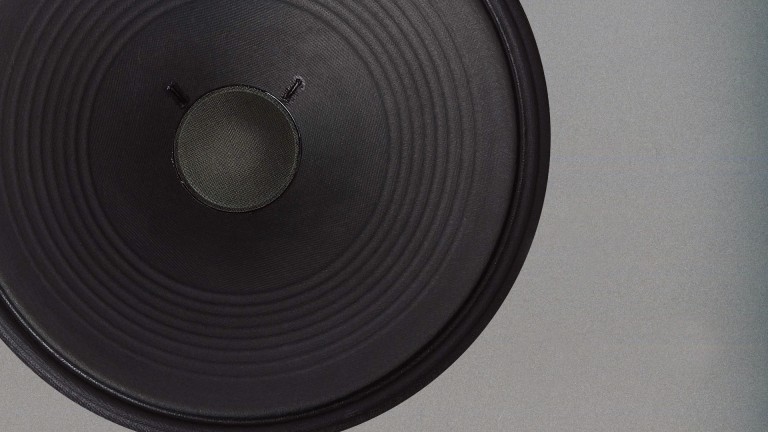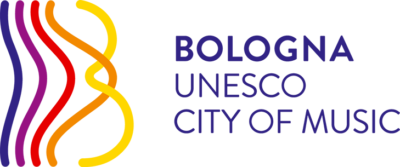From 1971 to 1980: From punk to new wave, in search of new answers
The 1970s were years of transformation, renewal and revolt. Various faces of “revolutionary” thought coexisted in music. Punk was angry and sought truth. The avant-garde sought new canons. The songwriters photographed life, politics and society.
The decade just beginning had forgotten the apparently carefree spirit of the urlatori.
The wind of youthful protest, which had been blowing since the second half of the 1960s, became a storm that had its beginnings in music and in movements such as punk, of which Bologna was one of the epicentres in Italy.
The 1970s were a period of contrast and contradictions in music, not least in Bologna – Lucio Dalla’s “4/3/1943” was censured at the 1971 Festival di Sanremo. This song, written by Paola Pallottino, is dedicated to the memory of Lucio’s father, who had died prematurely. It was sung for the first time at the Teatro Duse in December 1970. The original title was “Gesùbambino” but this, as well as some of the words, was considered unsuitable to the canons of the Festival and underwent obligatory alterations.
In 1971, Gianni Morandi appeared at the Teatro Vigorelli of Milan together with the Led Zeppelin. The concert was interrupted by the police and the experience was traumatic. The new sonorities of the British invasion and of hard rock found many Italian artists, still rooted in beat, unprepared. Not only Morandi, but also Dalla, Venditti, De Gregori and Battisti were violently attacked by proletarian critics, who objected to their success and to the themes of their songs. A number of international artists ceased to play in Italy for fear of contestations and brawls.
Bologna was an important university centre and was active both culturally and musically. Still in 1971, the DAMS, the degree course in Arts, Music and the Performing Arts, was born; the Academy began to legitimize popular culture. Alone in Italy, it provided a laboratory for avant-garde and experimentation, including music, in heterogeneous areas and styles. Among these were punk and new wave. An expression of this was the Skiantos who, during the 1979 Bologna Rock, presented their pungent, transversal avant-garde vision before an audience of almost 6,000 at the PalaDozza, appearing without actually playing.
In 1974, Paola Pallottino wrote the words for the album “Donna Circo”. This was Italy’s first feminist disc. It was never distributed, and was rediscovered in 2019 by a number of Bolognese female interpreters, including Angela Baraldi and Vittoria Burattini of the Massimo Volume. It was joined in 1975 by the album “Alle sorelle ritrovate”, created by the songwriter Antonietta Laterza for the CRAMPS label.
The free radios began to define a new concept of musical communication. After the first experimental FM broadcasts by Radio Bologna in 1974, the birth of radio stations throughout Italy radically changed the scene. Vasco Rossi founded Punto Radio at Zocca. Those participating included Gaetano Curreri of the Stadio and the guitarist Maurizio Solieri.
The subversive shocks that rocked Italy did not spare Bologna. Its artists were sensitive to these traumas, as can be seen from Claudio Lolli’s “Agosto”, recalling the bombing of the Italicus train in 1974, and Lucio Dalla’s “Balla balla ballerino”, a reaction to the terrorist outrage of 2nd August 1980. In 1977, protest and repression hit Bologna severely, from the death of Francesco Lorusso to the closure of Radio Alice and the tanks in Via Zamboni.
In this tense climate, the music of Bologna communicated through several directions and styles. The songwriters’ movement, introspective and sentimental, sought answers outside collective protest. Lyrical vocal writing was combined with piano, orchestras, wind bands and folk sonorities. Parallel with this current, of which Dalla, Guccini, Laterza and Lolli were a part, the city presented other facets, including punk, new wave and rock.
Punk reached Bologna from the Anglosphere, not only as a musical genre but as a youthful language that opposed the rules of the system. It became a fundamental element of the Bolognese musical fabric, especially in the following decade, together with rock and hard rock. It was a deeply critical form of expression, one which reached its climax in 1980; the concert by the Clash was contested by the most intransigent fringe of the movement, which no longer recognized itself in the group’s image and themes, linked as they were to the multinational record label CBS.
The electronic evolution of the 1980s was close at hand and its presence was felt with the arrival of Italo Disco.
The fruit of the imagination of Mauro Malavasi, the new genre arose from an extended dance version of Steve Winwood’s “I'm a man”, sung by Marzio Vincenti. A student of the Conservatorio of Bologna, in 1978 Malavasi, together with Jacques Fred Petrus, founded the Goody Music label. Over the following six years, he produced and played for the major record labels, working in Bologna and the USA with Davide Romani, Paolo Gianolio, Lele Melotti and Rudy Trevisi, uniting the sound of black music with the synthetic matrix of the new technologies.
The explosion of the synth was to redefine the concept of the songs, in Bologna as elsewhere.
Listen to the playlist

